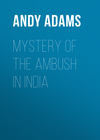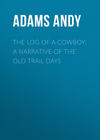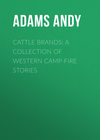Kitabı oku: «Mystery of the Ambush in India», sayfa 3
V
Danger at Dawn
Right then, Biff’s one hope was that he and his two companions could lose themselves in another and bigger crowd and thus dodge the disguised stranger who was so intent upon following them.
They couldn’t have chosen a better place than the Howrah Station. It seemed five times bigger than any other railway station Biff had ever seen, and it contained ten times as many people. The afternoon had reached its peak of stifling heat, so they had come in here and sprawled over the acres of cool marble floors in preference to the Calcutta sidewalks.
The boys had to step around prostrate bodies or clamber over them, as did hundreds of other travelers who were thronging the great depot. Practically all of those travelers were natives, and many of them were carrying huge bundles that contained most of their worldly possessions.
Chandra explained that many of Calcutta’s three million citizens were constantly on the move, due to lack of food or jobs; but that as fast as they left town, others poured in to replace them. He added that the population was still shifting between India and Pakistan, which accounted for more travel, particularly since the East Pakistan border was so near Calcutta. He also mentioned that many were pilgrims bound for Benares and other places holy to Hindu cults.
While the boys picked their way through the immense station, Chandra pointed out examples of each group. He also called attention to occasional Europeans and well-dressed Indians, including Hindus of high caste.
“Those few,” declared Chandra, “go first- or second-class. Always, some talk English and ask too much about everybody’s business. I know, because I have gone second-class with Jinnah Jad. So we will go third-class and talk just to each other.”
That satisfied Biff and Kamuka. It wasn’t a matter of saving money, for they had pooled their cash and had more than enough to travel in luxury, with Chandra included. But getting to New Delhi unnoticed was essential, and the train trip, which required more than twenty-four hours, was the sort that promised complications, so the more they avoided, the better.
Chandra had a bright idea on that score, too. Biff gave him enough money to buy three third-class tickets, but when Chandra rejoined the other boys, he returned half the cash.
“I only buy tickets halfway,” he stated, “so nobody will know we are going to New Delhi. They will think maybe we are going to Benares or Allahabad, but instead we will go on to a little village where my uncle lives and start again from there.”
“You’re the boss of this expedition, Chandra,” Biff assured him. “Anything that will cover our trail is a good idea.”
Breaking the trip also seemed a good idea when Biff saw the accommodations that the third-class carriages offered. Biff had been afraid that he might be noticed on the station platform, the way he had been on the bus, but that worry soon was over. The platform was thicker with milling humanity than the station itself. People would have been pushed onto the track, if the train hadn’t been there to receive them.
Many were crowding into first- and second-class compartments, only to be pushed out and ordered back to where they belonged, in third class. Amid the commotion, Chandra found one third-class compartment that looked full, but wasn’t, because the occupants had simply spread their luggage in a haphazard way. Chandra began piling them together like so many bundles of wash, until he had made room for all three boys, including their own luggage.
The seats in the compartment were little better than benches, but Biff gladly drew himself into the deepest and most uncomfortable corner, rather than be observed too closely when members of the train crew closed the doors, for some of them were genuine Sikhs who might have seen through his thin disguise.
The platforms were still crowded when the train pulled out – as many people had come to the station simply to see the others off. Then the train was rolling into the open country, what little Biff could see of it. The rattle of wheels mixed with swirls of dust and blended with the smell of garlic and spices, for everyone was bringing out native food, bowls of rice, bananas, and other fruit. Biff’s appetite was suddenly roused.
“Think of all that rice Jinnah Jad wasted,” Biff said to Kamuka, “when he did that trick! I could eat some of it now.”
“He didn’t waste it,” reminded Kamuka. “He put it in our pockets, remember? We should have kept it.”
“Say, that was a neat trick.” Biff turned to Chandra. “How did Jinnah Jad work that part of it? Or don’t you know?”
Chandra grinned broadly.
“That is one trick I do know,” he declared. “Remember when I went through the crowd, tapping people’s pockets, asking for rupees, like this?” He tapped Biff’s pocket, then Kamuka’s, and they both nodded. “While I do that,” Chandra went on, “I use my other hand to put rice in other pockets. So later, the people find it there.”
“So that was it!” Almost instinctively, Biff thrust his hand in his other pocket, then brought it out in amazement, with a pair of candy bars. Kamuka, reaching into his own pocket, found himself staring at a handful of loose peanuts.
“You must have bought these when you went for the tickets,” said Biff to Chandra, “and then you slipped them into our pockets while you were telling us how you did it! Candy for me – peanuts for Kamuka – ”
“And now you have peanuts, too,” put in Chandra, “in the pocket where you keep the big ruby.”
Again Chandra was right, and Biff’s amazement at the Indian boy’s skill was complete. They ate their chocolate bars and peanuts along with some fruit that Chandra had also brought them. Then, when the other passengers were no longer noticing them, Chandra remarked:
“Remember how the big man with the fake beard got tangled in the crowd, when we were leaving the bus?”
Biff and Kamuka nodded.
“I do that too,” declared Chandra proudly. “I push one person like this” – he nudged Biff forward – “and another like that” – he gave Kamuka a backward push – “and pretty soon all are in each other’s way.”
Biff smiled at that, too; then he turned solemn.
“We’ve been watched,” he declared, “and that’s for sure. So let’s be still more careful from now on.”
At various stops, the train disgorged many passengers who filled up water jars that they had brought along and returned to the train before it started. Biff and Kamuka let Chandra handle that job for their party, rather than show themselves on station platforms.
Occasionally, though, Kamuka waved from the compartment window to fruit sellers who also supplied milk and soft drinks. At such stops, first- and second-class passengers went ahead to the dining car or had attendants bring choice dishes to their compartments; but third-class travelers didn’t rate such service.
It was turning dark when the train reached the great coal fields in western Bengal. That part of the trip interested Biff most, because of the mining activity. But there was little to be seen, and soon, despite the rattle and jouncing of the train and the discomfort of the stuffy corner, Biff began dozing off.
Once, Chandra nudged him and whispered, “Watch your turban! Keep it on straight!” and Biff woke sufficiently to realize that he had one ear out of the cumbersome headgear. He worked it into place, saw Chandra nod approval, and then went back to sleep.
Again, Chandra woke both Biff and Kamuka, who was sleeping, too, telling them, “Watch out, now! New passengers coming on board. Don’t let them look at you too close.”
So Biff and Kamuka kept their heads together and engaged in low conversation until the new passengers gave up looking at them and fell asleep themselves. That gave Biff and Kamuka the right to do the same. This time, Biff’s sleep was sound, undisturbed by the joltings of the train or the blare of the locomotive whistle as it rushed on through the thick night.
It was a dream that wakened Biff. He imagined that he was clutching the big ruby, while hands were trying to snatch it from him. He was confronted by bearded Sikhs and as he clawed wildly at their faces, their beards came away, until he saw only one smooth face and opened his eyes to find that the dream, in a sense, was real.
Biff was clutching the bag that contained the ruby, but his hand was deep in his jacket pocket. The hands that were clutching him were Chandra’s, shaking him awake; and the smooth face, too, was Chandra’s. Quickly, the Indian boy put his finger to his lips for silence.
The train was standing still. All was silent in the compartment except for the snores of other passengers. The lights looked dimmer than before, because it was no longer pitch dark outside. Faint streaks of dawn were reddening the sky beyond low-lying hills. The compartment at last seemed slightly cool.
Biff risked a whisper. “Where are we?”
“At an engine-changing station,” Chandra whispered back. “Our own is farther on, but we cannot wait until then.”
He gestured toward Kamuka, who was still asleep. Between them, Biff and Chandra shook Kamuka and roused him instantly. Like a team, the three boys gathered their packs and stepped carefully past the knees and over the legs of sleeping passengers. Moments later, they were on a weather-beaten platform alongside the long, silent train. A few dozen human figures were stretched on the station platform, with white sheets of cloth drawn completely over their motionless forms, like shrouds.
“Railroad workers, mostly,” whispered Chandra, “waiting for the next shift. No one else gets on or off here, at least, not often.”
“But why are they covered over?” asked Biff, impressed by the weird appearance of the figures.
“Because the night was cool for them,” replied Chandra, “but not too cool for the insects. Soon, now, the covering over their heads will keep the sun from waking them.”
The boys stole across the platform past a square-shaped station where more such figures lay asleep. Kamuka, looking back at the train, put the next query:
“But why did we get off here?”
“Too many passengers changed places in the night,” replied Chandra. “I saw new faces; then later, I recognized some of the old again. If we had gotten off at a crowded station, we could easily have been followed. Here, no one else can leave the train without our seeing them.”
Chandra was right. The boys had reached a road that led at an angle from the tracks. Looking back, they could see the full length of the brightly colored train, as they continued on their way. In the gathering daylight, their keen eyes would surely note any motion on the steps of any of the cars. Ahead, the road led through a grove of trees. Once there, the boys themselves would be out of sight.
There was just one spot the boys’ roving eyes did not cover; that was the portion of the platform obscured by the squatty station. There, three white-shrouded shapes were rising like ghosts in the gray dawn. They dropped away their sleeping sacks, revealing limber figures clad in dark clothes that blended with the background of the station wall, as well as the trees beyond.
One man gave an order in a native dialect and like human bloodhounds, the stealthy trio stalked off along the very road that the three boys had taken!
VI
The Cry of Death
When the dawn had broadened into full daylight, the change was not too noticeable, for by now the boys were trudging along a narrow, winding road that was flanked by vivid tropical foliage and thick, overhanging tree boughs that cut off much of the sunlight.
To Kamuka, this was intriguing indeed, for it carried him back to his own jungle life in Brazil, especially when he caught the chatter of the monkeys from the higher branches. But to Chandra, who was familiar with it all, such sounds were an annoyance as he tried to explain his plans to Biff.
“This road will take us to the Grand Trunk Road,” stated Chandra, “which we will follow until nightfall to reach the village of Supari, where my uncle is patwari– ”
“Patwari?” interposed Biff. “What is that?”
“The same as karnam or kulkarni or talati– I have heard it called by all those names – but it means in English, the man who keeps the village accounts.”
“That would be the town clerk in America.” Biff nodded. “So your uncle is an important man. Go on.”
“On the Grand Trunk Road,” continued Chandra, “we will look like everybody else, because all India is there. You will see hathi, oont, ekka– ”
“Wait now, Chandra,” put in Biff. “Hathis are elephants, that I know. And oonts are camels. But I never heard of ekkas. What are they?”
“Pony carts,” returned Chandra seriously, “and you will also see bicycles and jeeps.”
“It sounds good,” decided Biff. “But what if we were being watched on the train. Do you think they will catch up with us?”
“They cannot catch up,” returned Chandra, “because they have gone ahead. If they talked to ticket agent or to the man who took our tickets, they know where we should get off and will look for us there.”
“When does the train reach our station?” Kamuka asked.
“Not for about an hour,” calculated Chandra, “counting change of engines. Before they come back to look for us, we will be on the Grand Trunk Road.”
Despite his assurance, Chandra was moving rather cautiously, but for another reason. He was looking from side to side, for they were in the jungle now and there was no telling what night creatures might still be on the prowl. Chandra knew this from occasional experience in such a setting, as any Indian boy would who had lived in a native village like Supari. But Kamuka, the boy from Brazil, recognized it instinctively, for he was jungle born and bred, though in the opposite hemisphere.
“Remember, Biff?” queried Kamuka. “The time the big jaguar jumped at you?”
“I remember,” replied Biff, “because it was you who stopped it, Kamuka.”
“I just helped,” said Kamuka. “But this jungle reminds me of jaguars. Do they have them here?”
“They have cheetahs, leopards, and tigers. Those should be enough – and more.”
“And big sucuria, too?”
“Yes, they have those.” Biff turned to Chandra. “He means a boa constrictor. We ran into a big one up the Amazon, a snake the size of your python.”
“What about Macu?” demanded Kamuka.
“Head hunters,” translated Biff to Chandra. “He wants to know if you have them, too.”
“We have something much worse,” declared Chandra solemnly. “We have thugs, or stranglers, who ride on trains with us. They are after your ruby, Biff, if you still have it.”
Anxiously, Biff brought the bag from his pocket, opened it and held the Light of the Lama in his palm, where it caught the glint of the sunlight and reflected it with a vivid crimson sparkle that seemed to dye Biff’s entire hand. The great ruby was larger than the biggest walnut, and as Biff turned it in the light, its flattened surfaces, or facets, rivaled one another with their fiery glow.
Chandra, who had been around the gem markets of Calcutta and other Indian cities, and Kamuka, who had seen the finest of South American stones during his studies in Brazil – both were swept with awe.
“Never have I seen such fire!” exclaimed Chandra. “The red ruby, like the blue sapphire, is often beautiful in color, yet very dull.”
“This one loses its sparkle sometimes,” Biff declared. “And according to Mr. Chand, it’s a bad sign when it does.”
“It gives us a good sign now,” observed Kamuka. “In South America, we have the finest of all gems, the green emerald from Colombia. They say it glows brighter than any red ruby, but now I am not so sure.”
Biff smiled, as he recalled Kamuka’s debates with Li while they were on the freighter voyage. For Kamuka to admit that a product of South America could be matched by those of any other continent, was a concession indeed.
“That ruby,” calculated Chandra, “must be worth ten lakhs at least, ten times a hundred thousand rupees. But that is not why your father wants it. He needs it for some special purpose; that was why he went to New Delhi. That much I have heard Mr. Chand tell Jinnah Jad.”
“So it was through Jinnah Jad,” inquired Biff, “that my father’s message reached me?”
“It was more through me,” returned Chandra proudly. “I swam out to the ship, carrying the tape in this.” He produced a watertight bag on a neck chain. “I looked for the cabin with the tape recorder. I put on the tape, the way Mr. Chand showed me. Then I heard you coming, so I went out through porthole quick, and dropped straight down.”
“A neat trick,” complimented Biff. “I’d like to see you do it some time. Tell me, Chandra, did you ever meet my father?”
“Yes, I see Sahib Brewster twice, when I was there at Chand and Brothers, with Jinnah Jad.”
“And did you meet his friend, Barma Shah?”
“No, never. He came only to see Mr. Chand in secret. He is what you call undercover. He stayed away on purpose, when others began to find out that the ruby was there. Like thugs I speak about.”
They were trudging along the road again, and now Biff recalled that it was Chandra’s mention of thugs, or stranglers, that had caused him to stop and make sure that he still had the priceless ruby safely tucked away.
“These thugs,” questioned Biff, “do they want the ruby because of its value?”
“They want it because of the goddess Kali,” replied Chandra. “That is why they started riot outside of Chand and Brothers. They would have strangled Mr. Chand, but they found the ruby gone – ”
“So they were looking for me because I had it, and they would have killed me for it!” Biff explained.
“That is right. But thugs will strangle almost anybody if they find suitable time and place, because they believe in Kali.”
Biff was putting the ruby back into its bag. Chandra paused to hand him the chain with the waterproof bag, suggesting that he put the packet in that, which Biff decided was a good idea. As they started on again, Biff urged:
“Tell us more about this Kali business, Chandra.”
“People say Kali was a great goddess who killed a huge monster that wanted to destroy the world,” Chandra related. “But each drop of monster blood sprang up into a new monster. So Kali taught men to strangle monsters with a special cloth called rumal, about this long” – Chandra spread his hands approximately a yard apart – “and after monsters were all gone, men began to strangle men in the same way, never shedding any blood. And so they do today.”
“But all that was stopped a hundred years ago – ”
“You mean the time when British Raj said there should be no more thugee? Look there” – Chandra stopped abruptly and pointed to an anthill at the side of the road – “and you see white ants. They are dangerous, like thugs, so I stamp them out.” Roughly, Chandra trampled the anthill and the insects teeming around it. “But are they all stamped out? No, some have gone under – how do you say it?”
“Underground,” returned Biff.
“That is it,” nodded Chandra. “That is the way the thugs went. Underground. Now they have come up again.”
“But why do they want the ruby for Kali?”
“Because they think that rubies are drops of demon blood that will become new demons unless Kali stops them. Your ruby would make biggest demon of all, so they want it most. So Jinnah Jad tells me.”
“How many thugs do you think were on the train with us, Chandra?” Biff asked.
“There always must be three,” declared Chandra. “Two to use the rumal while the third holds the person they strangle. Always, they pick some quiet place. Often they work in many secret bands, so they have a special call, which Jinnah Jad has heard and warned me against. It goes like this – ”
Stopping short, Chandra tilted his head back and gave a long, weird howl, “Hyyyyaaaaahhhh!” that sent shivers up Biff’s spine, despite the increasing warmth of the morning. Biff pulled off his big turban and mopped his forehead.
Kamuka, too, was impressed. Never in the jungle of his own native Amazon had the Brazilian boy heard a cry as strange as that. It was a curious cross between a human shriek for help and an animal’s anguished wail. In jungle or village, it would strike a familiar, yet fearful note.
But as Biff and Kamuka stared in silence, Chandra’s own face turned suddenly tense. From beyond the bend in the narrow road behind them came a distant, echoing answer:
“Hyyyyaaaaahhhh!”
It was Biff who broke the grim hush.
“Try it again, Chandra. Let’s see how close they are.”
Chandra repeated the call in a louder wail that must have carried farther, for now the answer came, not from behind them, but from the jungle reaches up ahead. To the startled boys, their plight was all too grimly plain.
On a forgotten road, walled on both sides by solid jungle, they were trapped between two murderous bands of approaching thugs!







